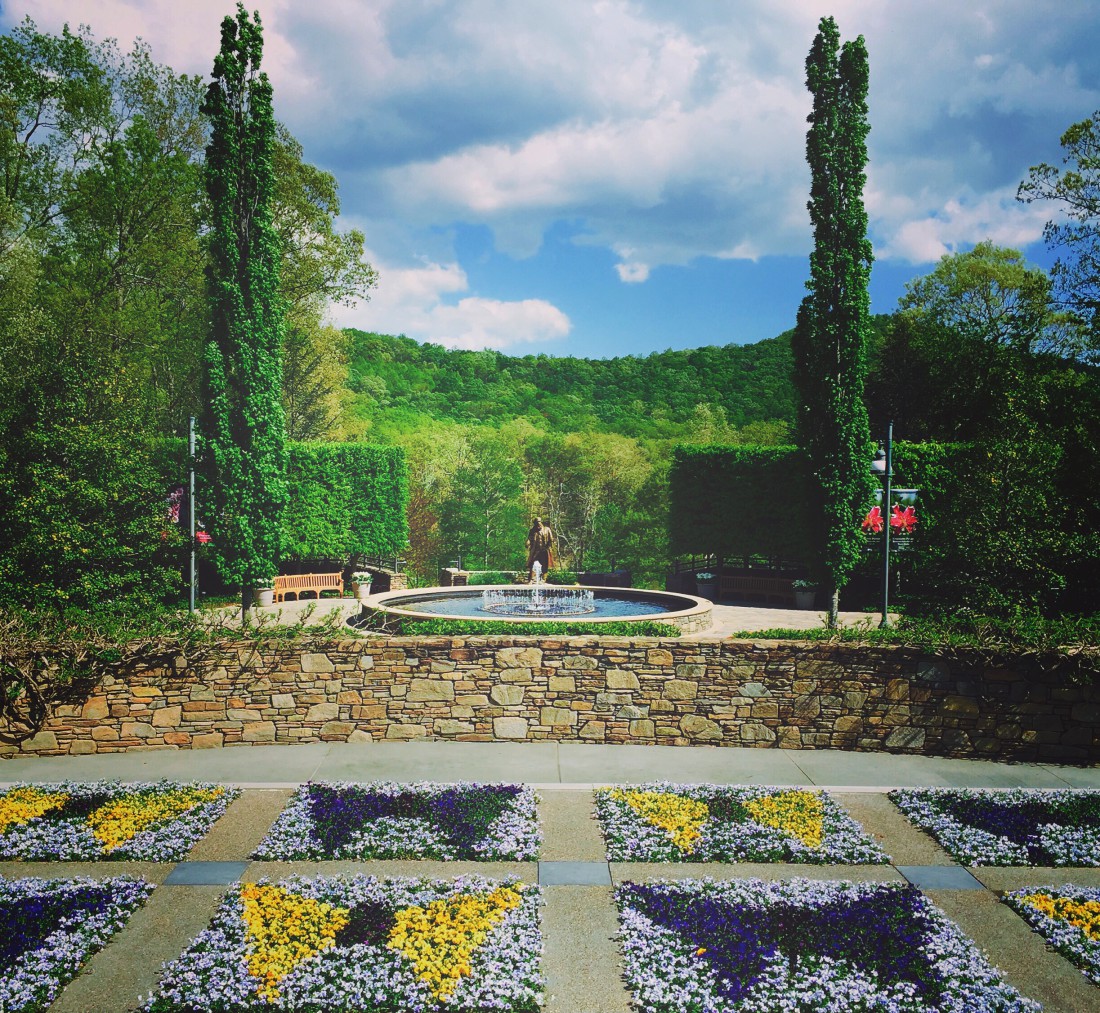Two upcoming talks at the North Carolina Arboretum will give local home gardeners, conservationists and bee lovers alike a rare chance to hear longtime environmental educator and landscape designer Heather Holm speak on using native plants to attract and support beneficial insects and wildlife. Her Tuesday, June 21, presentation is sponsored by the arboretum and the Asheville and Hendersonville affiliates of Bee City USA.
“Gardening for Bees, Butterflies & Beneficial Insects” will start at 6 p.m.; “Selecting Native Trees and Shrubs That Support Pollinators” will follow at 7:30.
Holm, who wrote Pollinators of Native Plants, has worked as a horticulturist and landscape designer in the Great Lakes and Mid-Atlantic regions for over 20 years. Here are excerpts from her recent conversation with Xpress.
Mountain Xpress: We’ve heard a lot about declining bee populations. What more can you tell us about the importance of beneficial insects?
Heather Holm: Besides pollinating many food crops, native pollinators are responsible for pollinating approximately 80 percent of wild flowering plants. Without diverse plant communities, the animals that depend on plants and seeds wouldn’t be able to survive. Native plants and their pollinators are the foundation for the complex web of ecological interactions between flora and fauna.
What are the biggest threats to pollinators and other beneficial insects today?
Habitat loss, pesticide use, the introduction of pathogens and diseases, and climate change.
Are attitudes toward these important insects shifting?
There’s been growing interest, especially in the small-scale agricultural community, in the connection between diverse native plantings and attracting beneficial insects. By incorporating plantings near fields, farmers are gaining better crop pollination through a larger diversity of bees, and pest control from flower-visiting beneficial insects.
In Minnesota, where I live, it’s been a grassroots movement that started with individual gardeners and conservationists concerned about the dwindling bee population and pesticide use. Collectively, these individuals have successfully advocated for pollinator-friendly legislation and organized forums and conferences to help get the message out.
How can beneficial insects be better accommodated in gardens or small-scale farms?
Provide something in flower at all times throughout the growing season, from spring to autumn. Pollinators and beneficial insects emerge, migrate and disperse at different times, so it’s important for your ‘flower buffet’ to always be open for business. Secondly, start replacing the wind-pollinated plants with insect-pollinated plants. If you plan to plant a new tree, rather than selecting a wind-pollinated oak, elm or ash tree, choose a red maple, magnolia, tulip poplar or American basswood. By making smart choices, you can turn a pollinator desert into a pollinator paradise in short order.
What can we do as a community to be advocates for beneficial insects?
Form a small grassroots organization with like-minded people. Organize and host a small conference, symposium or town hall forum. Write to your elected officials. Plan a pollinator planting at your local school or place of worship.
How can we better utilize parks and other public spaces to support beneficial insects?
One of things we’re doing in Minnesota is defining best management practices for roadside mowing and making roadside vegetation more pollinator-friendly. Utility rights of way are also underutilized linear corridors that could provide a safer passageway for migratory pollinators.
What do you hope to convey through your lectures?
I hope people come away as fascinated with pollinating insects as I am and gain new insights about these amazing creatures’ diversity, life cycle and behaviors. My lectures are packed with information, including hands-on tools for supporting pollinators in your own garden or landscape.




Before you comment
The comments section is here to provide a platform for civil dialogue on the issues we face together as a local community. Xpress is committed to offering this platform for all voices, but when the tone of the discussion gets nasty or strays off topic, we believe many people choose not to participate. Xpress editors are determined to moderate comments to ensure a constructive interchange is maintained. All comments judged not to be in keeping with the spirit of civil discourse will be removed and repeat violators will be banned. See here for our terms of service. Thank you for being part of this effort to promote respectful discussion.